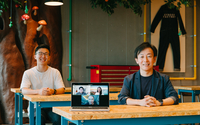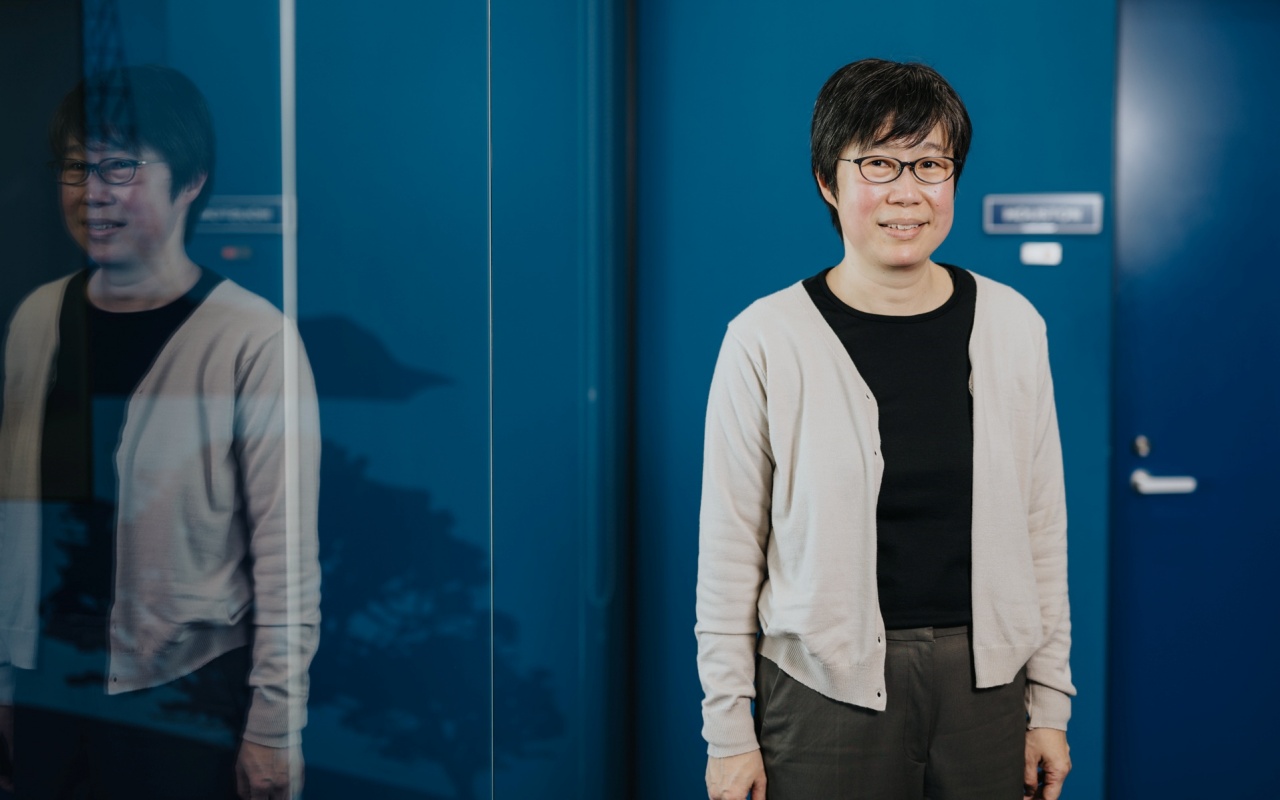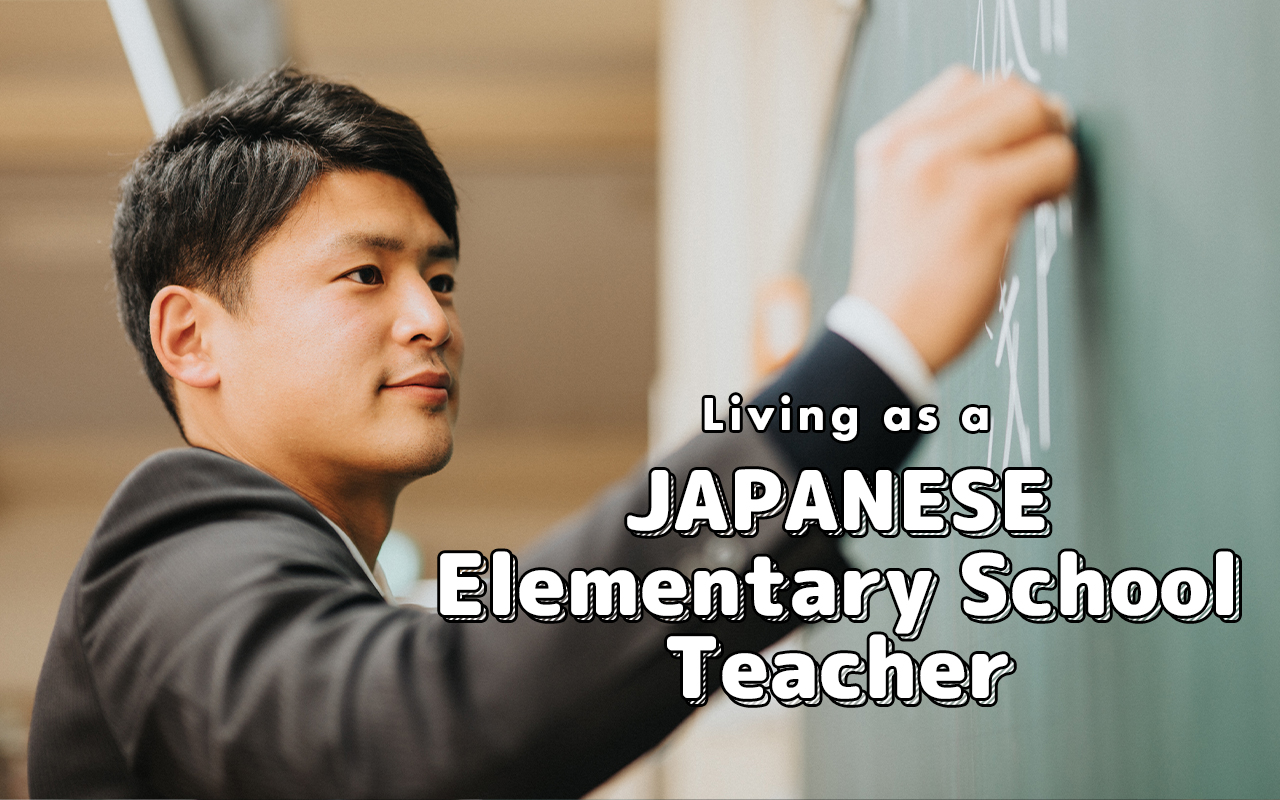The Problem with Denying Remote Work in the Name of Fairness
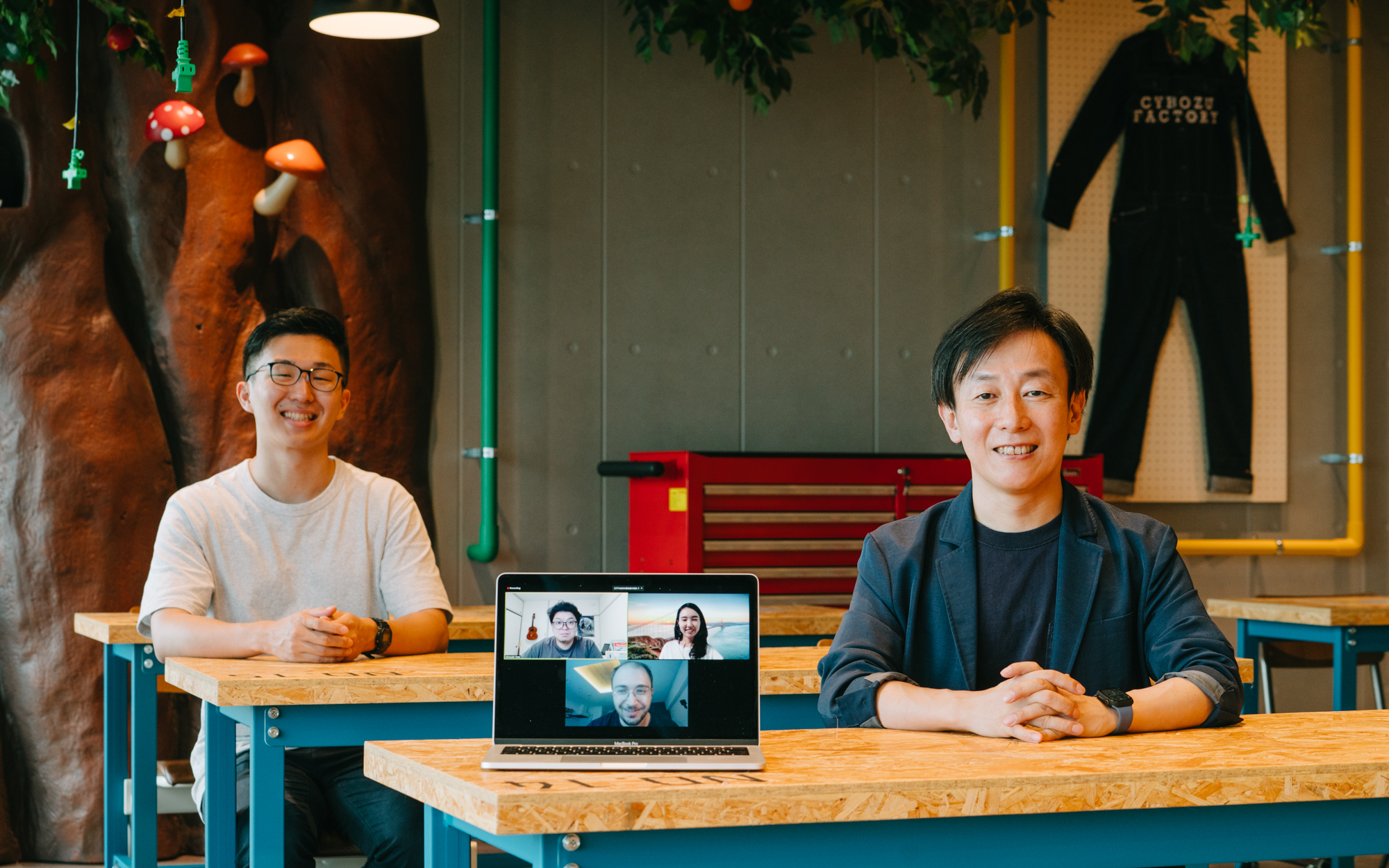
Many companies have started rolling out remote work policies in response to the coronavirus pandemic. However, in places like Tokyo where the warning against large gatherings has mostly been lifted, more and more companies are calling upon their employees to return to the office.
Why not just continue letting people work remotely?
One justification we often hear from management is that there are some types of jobs for which remote work is not possible, therefore having some colleagues work remotely while others can't is simply unfair.
However, what constitutes an optimal work environment varies from one person to the next. At Cybozu, in line with the corporate mission of "100 people, 100 workstyles," a sizable majority of employees have chosen to keep working remotely.
Dan Takahashi and Maki Jimbo of CybozuShiki (Kintopia's Japanese twin website) and Alex Steullet of Kintopia were curious to hear Cybozu CEO Yoshihisa Aono's thoughts on how Cybozu's organizational structure will look moving forward. They invited him to the company's otherwise deserted Tokyo headquarters to find out more.
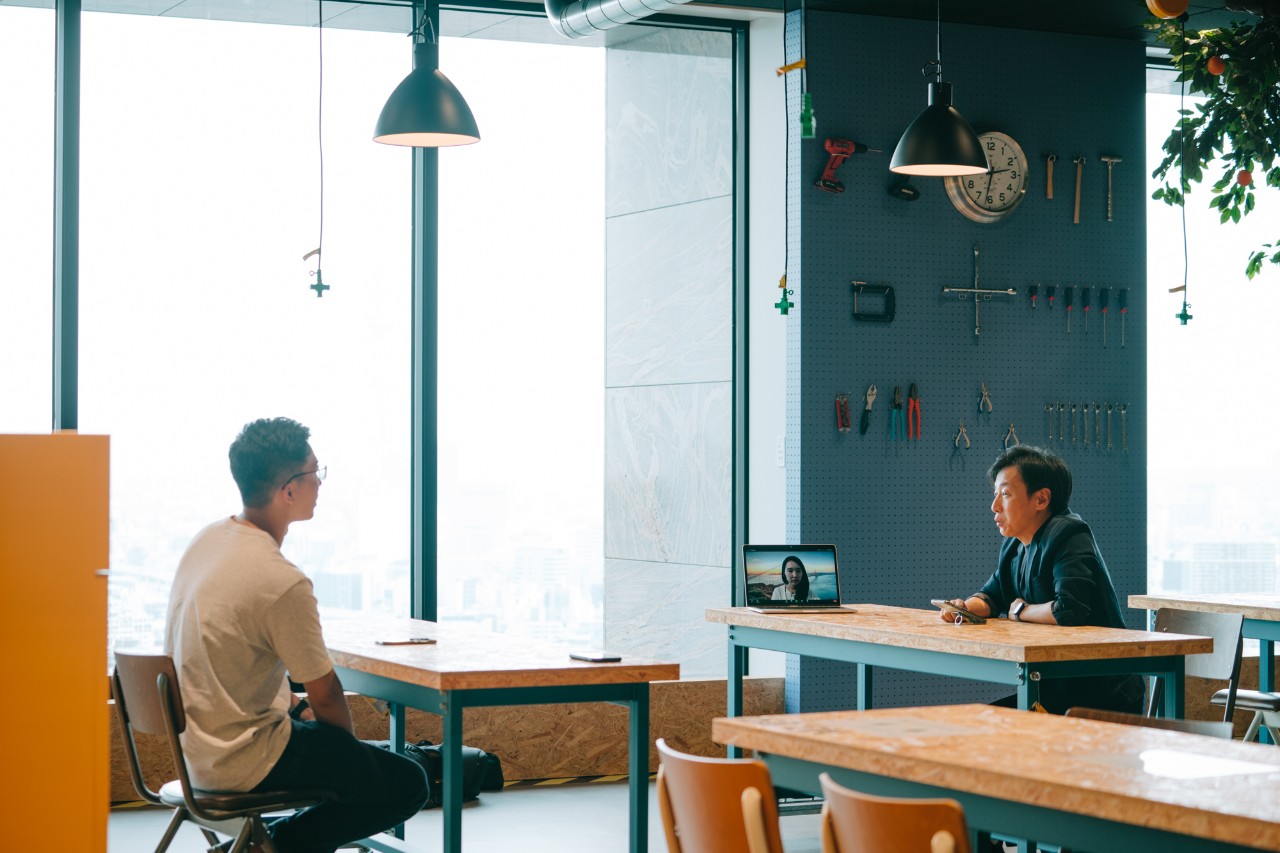
Because of the coronavirus, only Dan, Yoshihisa and the photographer were physically present for this conversation. All other participants joined remotely.
A sign of progress

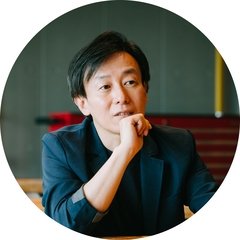
I get to spend much more time with my family. My work finishes at 6 p.m., and I can immediately go home to be with my children. I help them with their homework, and generally have gotten more involved in their education. I have a much clearer idea of where they are further along and where they may be lagging behind.
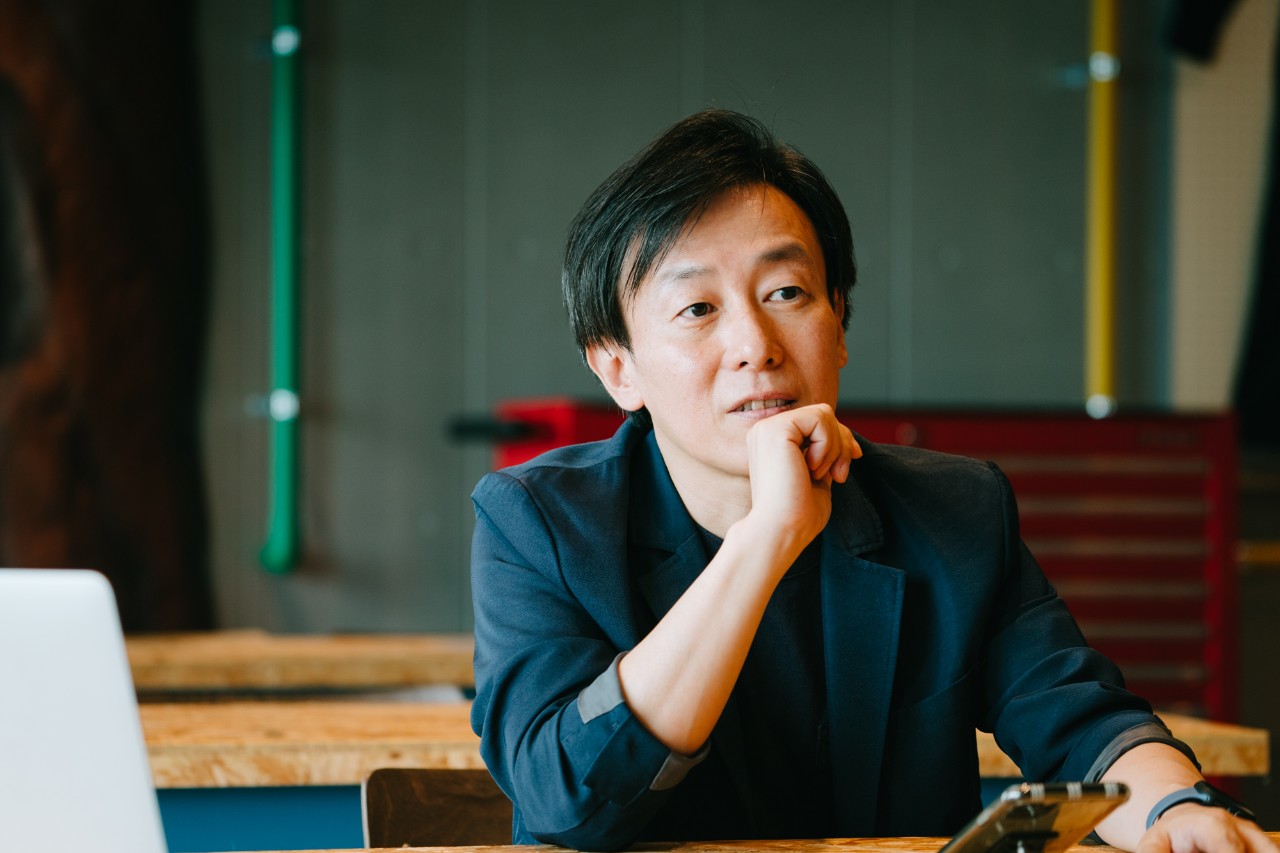
Yoshihisa Aono was born in 1971. After graduating from the Information Systems Engineering Division of the School of Engineering at Osaka University, he joined Matsushita Denkou (currently Panasonic). In August 1997 he co-founded Cybozu, and in April 2005 he was appointed CEO. Yoshihisa spearheaded the company's workstyle reform, as well as its transition toward cloud-based products in 2011. He is the author of several books on teamwork and happiness at work.



In the current situation, there is a growing societal consensus over the fact that it's better to conduct business from afar. Meeting online is the new norm. To me, that's already a sign of great progress. Remote work is awesome! (laugh)
Fairness doesn't equate to happiness


Dan of the CybozuShiki editorial team, in the office for the first time in about a month. It had been so long he forgot how to turn on the lights in the next room.

Is that really the case though? I don't think it reflects the reality we live in. In my opinion, equality and happiness should be treated separately.


For example, imagine you have an entire cake that you want to split between three people. Equal treatment would mean cutting the cake into three equal parts and giving one part to each person, right?
However, what if when you actually communicate with those three people, you realize that each of their situations and desires are different? For example, person A isn't that hungry, person B is dieting, and person C is starving. In that case which distribution do you think would be the most appropriate?



So to transpose that thinking onto the example at hand, instead of imposing a return to the office for everyone, the best thing to do would be to listen to the needs and desires of every employee?

Failing to respond to individual needs is how you end up watching your employees leave thinking, "Where are you going? We just raised your salary!"


Diversity makes for strong organizations


Maki Jimbo of the Cybozu Editorial Team. She hasn't set foot in the office in over six months.

Here at Cybozu, we have people who want to develop our software, people who want to sell it, people who want to promote it; then we also have people who want to run our media and disseminate our company's vision. All of these people are working in their own way, in their own direction, but I think that's a good thing.


For the sake of uniformity, it made sense for the management of those companies to want to bring together many of the same kind of employees.


The current era has spurred forth an unexpected kind of competition: where companies have to respond to ever-changing and diverse needs by developing a wide variety of products in limited quantities. For example, Apple now designs watches, but does that mean we should call them a watchmaker? Or are they a device manufacturer, or a music store, or something else entirely?
In the modern era, where it has become unclear who is competing with whom, the strongest organizations are ones that bring together diverse talents working in different directions, so that they can be flexible when they need to adapt.
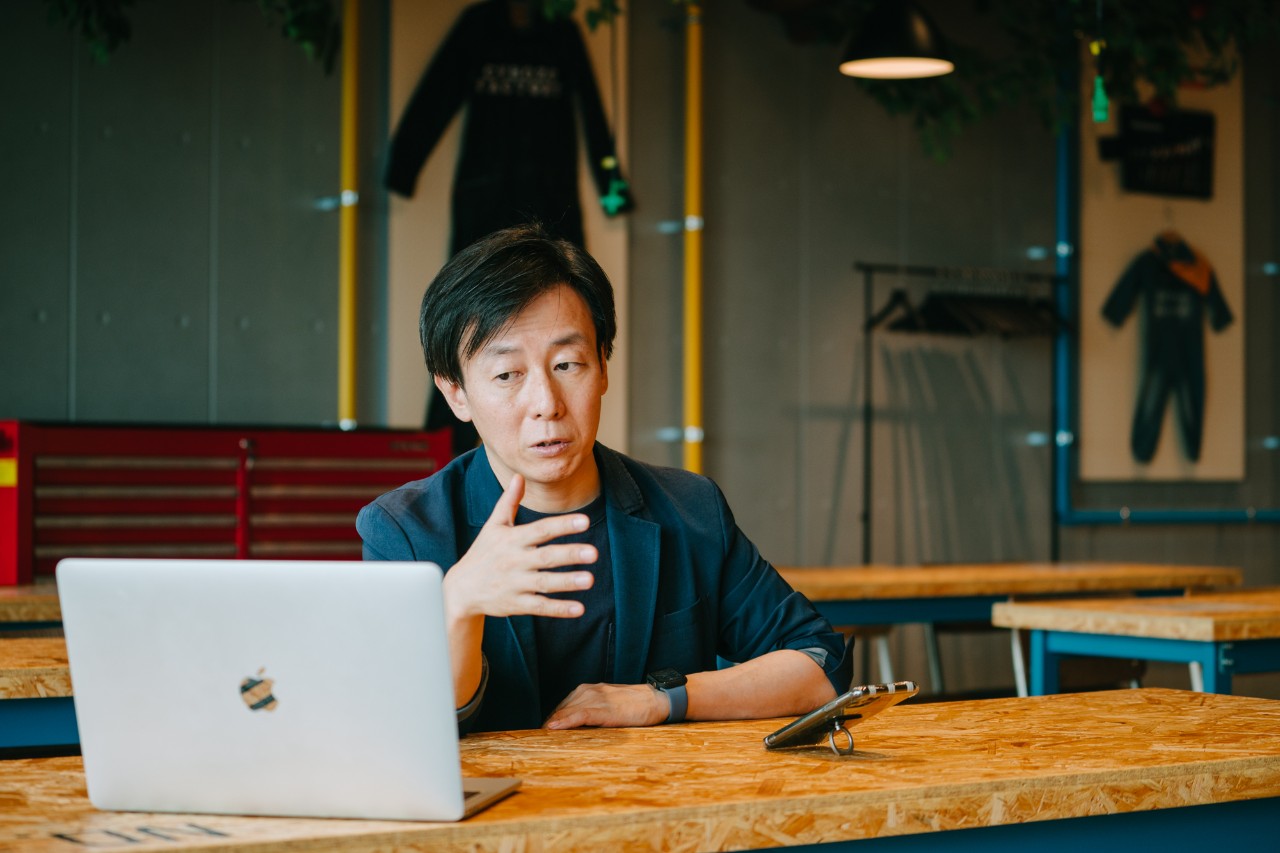
The benefits of open communication

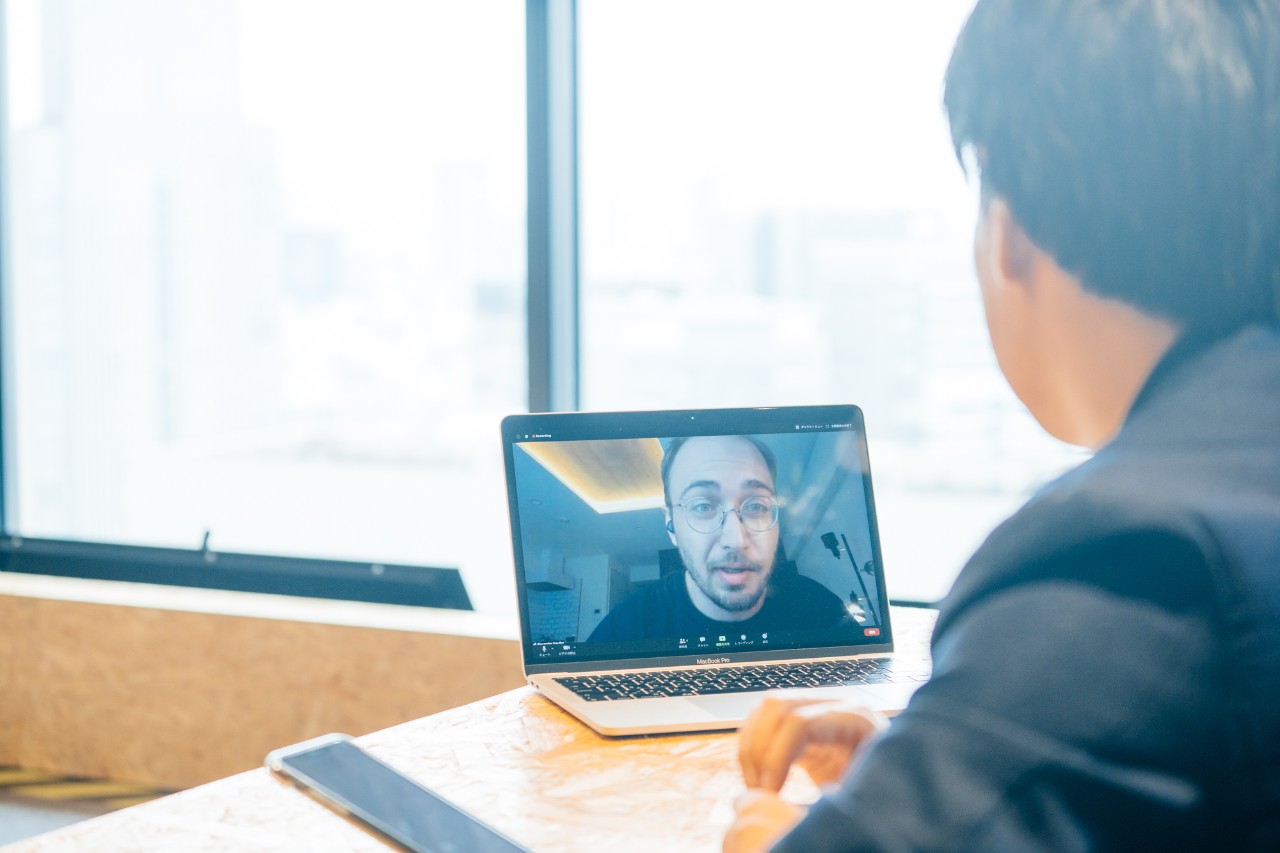
Alex Steullet, editor in chief of Kintopia, pictured here trying out his new earphones.

For example, at Cybozu we have "clubs," where members who share common interests can come together, talk about their passions, and participate together in club activities. I myself am a member of the pro wrestling club.


Someone from our company shared information about that meeting in the pro wrestling club's conversation thread. I saw it, and the day of that meeting I wore their newest t-shirt and came out to greet them.
The sale was successful! Although I don't really know if my t-shirt had anything to do with that. (laugh)



Organizations are built upon the diversity of individuals. If something is dear to a person's heart, whether it's a hobby or something else, that thing is probably worth sharing.
Self-interest without empathy is just selfishness



However, I don't have quite that level of confidence in my own abilities. I've personally made business mistakes, and have done damage to our organizational structure. That's why now, I believe drawing upon the self-interest of our employees is the best path toward success.


In my opinion, it takes a high level of empathy to draw upon a person's self-interest and turn it into a reality.
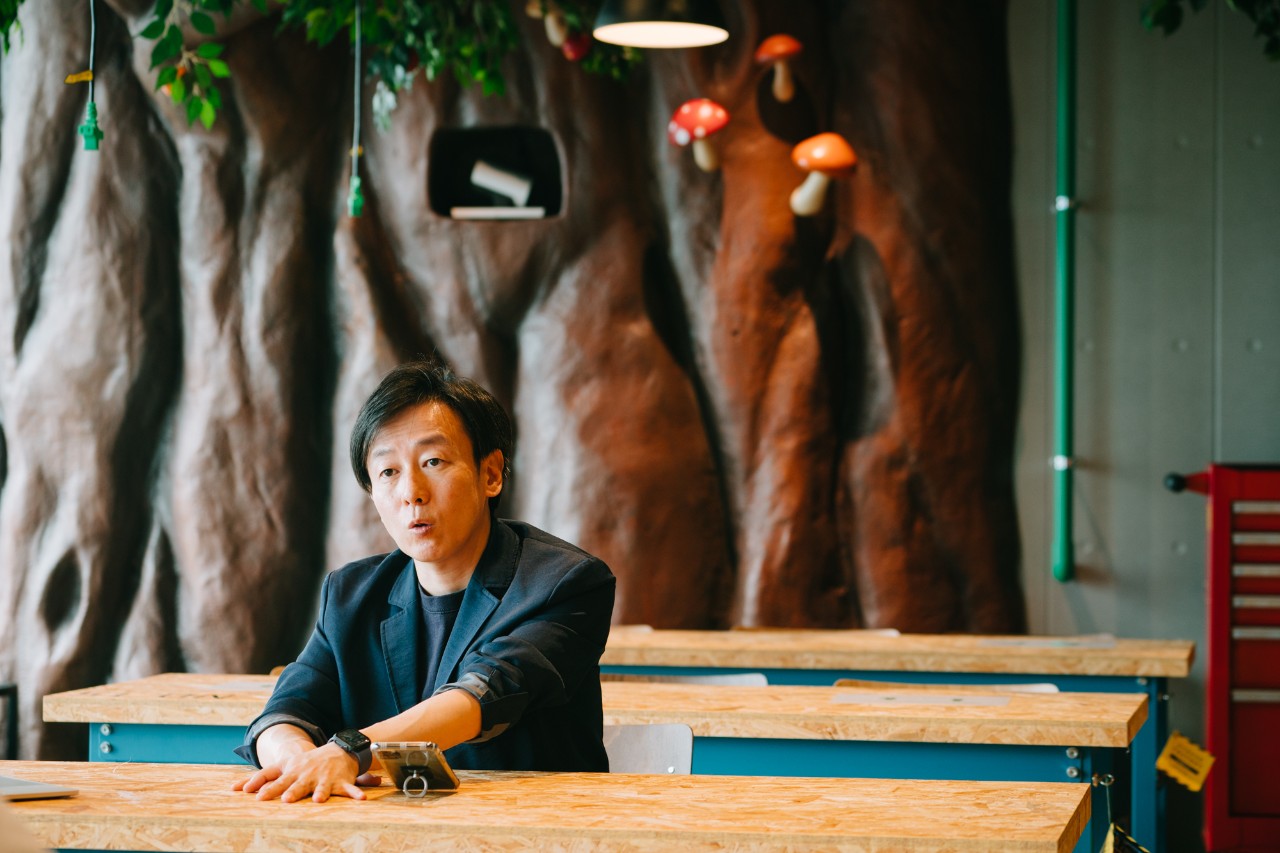

To make a decision, we thought about whether this person's self-interest--being able to go work at a cafe when it helped them better serve clients--fit into Cybozu's broader vision: building a society brimming with teamwork.
Since their request wasn't out of pure selfishness but actually connected with the company's vision, we decided that the company should at least reimburse the cost of a coffee.




Whether or not the people in charge are effectively communicating the company's vision on a daily basis is bound to be the breaking point for many businesses. Employees will stay at companies that succeed in using their message as a unifying force, and will leave companies that fail.
Looking beyond individual excellence


As I said in that program, attracting top talent was never my intention. I believe an organization is at its strongest when it brings together diverse individuals. In fact, I would be afraid of only hiring people who meet a certain preconception of what it means to be "top talent," because then you end up with a lot of the same kind of employees!

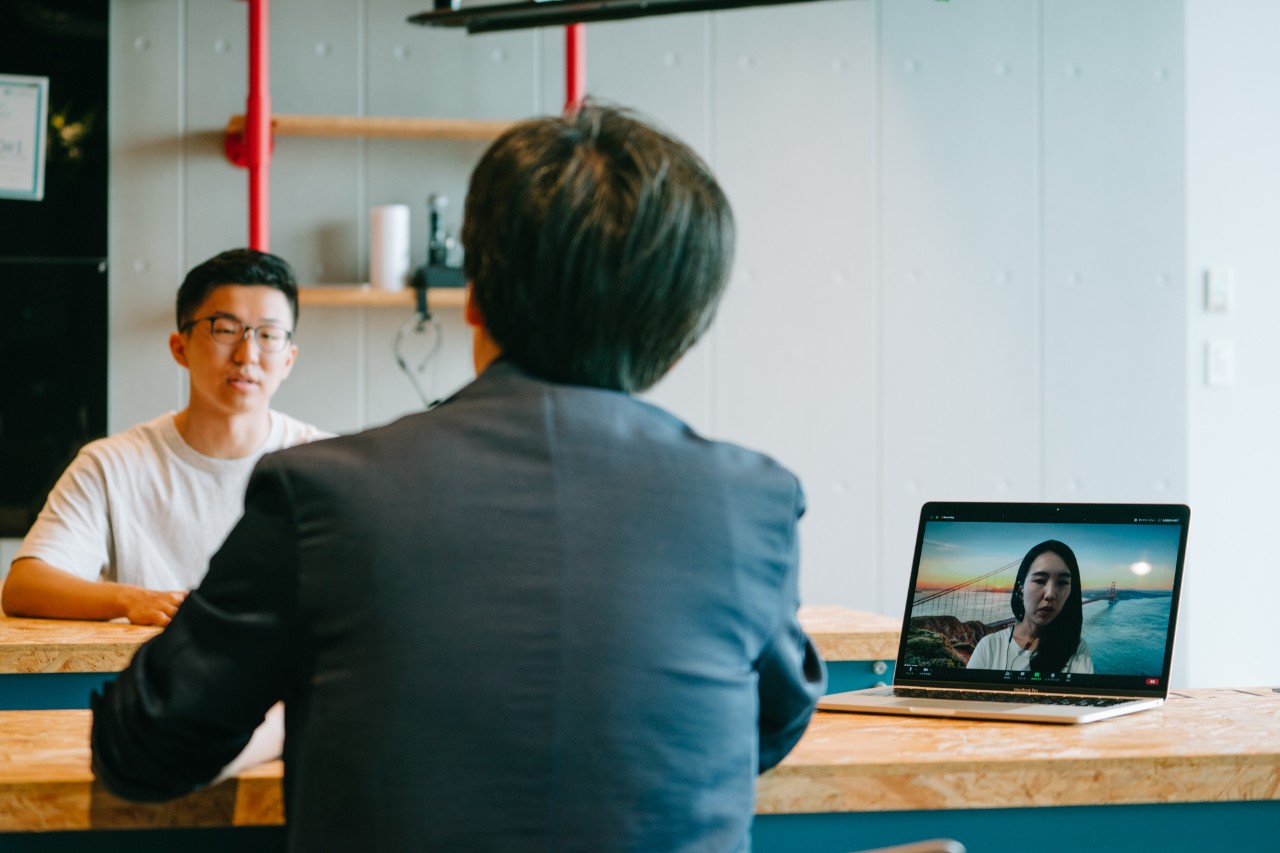

However, in the real world, you don't compete by comparing overall grades. You look for a comparative advantage. A person who is great in sales is not someone to whom you necessarily want to give the tasks of a developer.


I think managers and executives need to be oriented toward the individual, allowing each person in their team to display the utmost of their ability. What's important isn't to treat everyone the same, but to treat everyone in the way that works best for them individually.
That's why I believe we should aim for a system in which everyone can choose the work environment that's right for them. By making remote work more accessible for everyone, it becomes just another option people can choose from when defining their own personal workstyle.
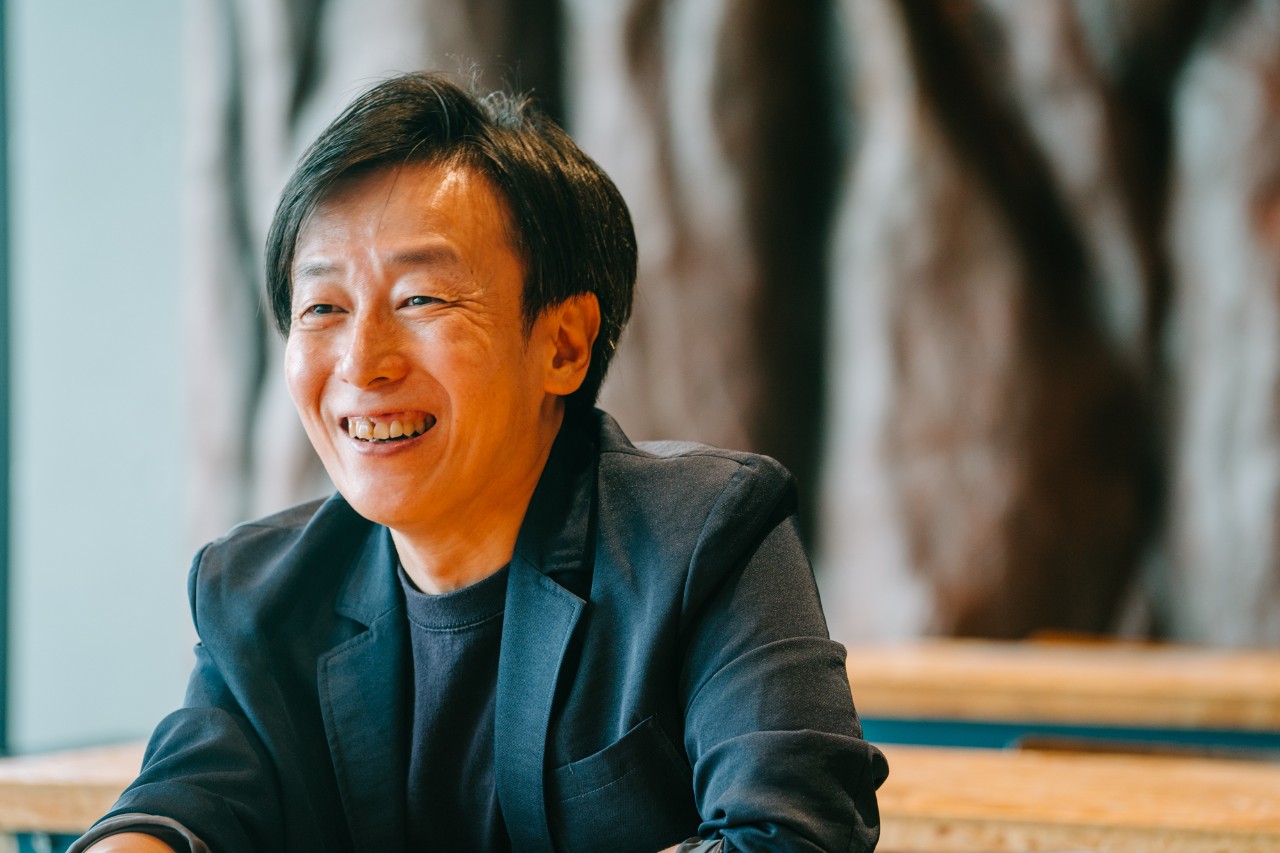
Japanese article written by Shinsuke Tada. Edited by Dan Takahashi and Maki Jimbo. Translation by Alex Steullet. English editing by Alex Steullet, Mina Samejima and Ade Lee. Photographs by Hajime Kato. You can find the original Japanese article at the link below.
Writer

Shinsuke Tada
Shinsuke is from Kanazawa, in Japan's Ishikawa prefecture. He has been working as a freelance writer since 2015. Shinsuke produces content in Japanese about career building, education, company recruitment, and more.
Photographer

Hajime Kato
Hajime Kato is a Japanese freelance photographer. He has experience conducting photography projects from the planning phase to execution, for a variety of media. The scope of his work varies from small art projects to mid and long-term "artist in residence" projects.
Editor

Alex Steullet
Alex is the editor in chief of Kintopia and part of the corporate branding department at Cybozu. He holds an LLM in Human Rights Law from the University of Nottingham and previously worked for the Swiss government.
